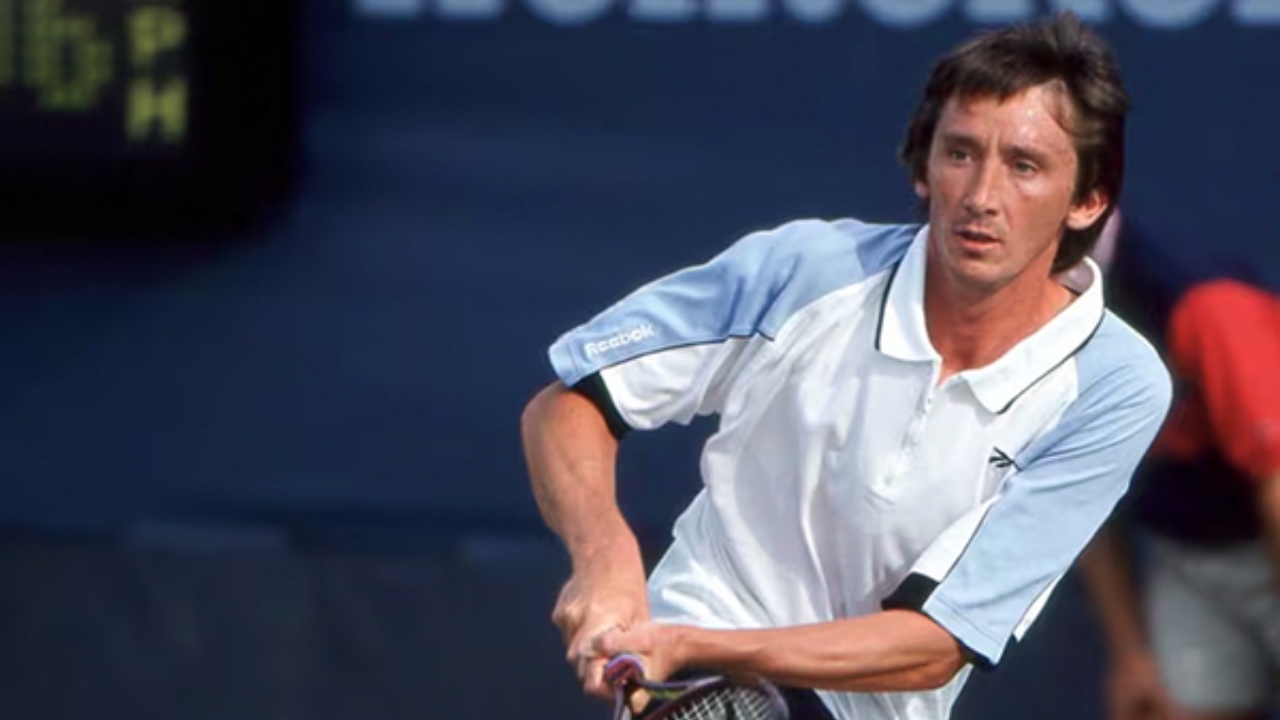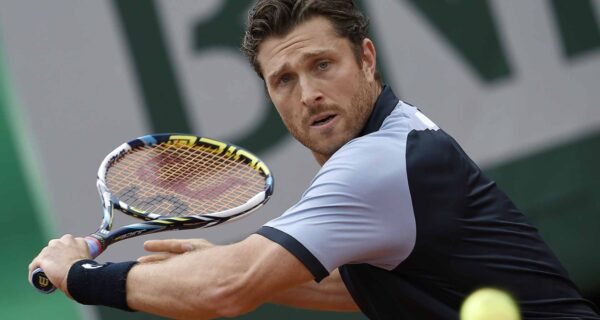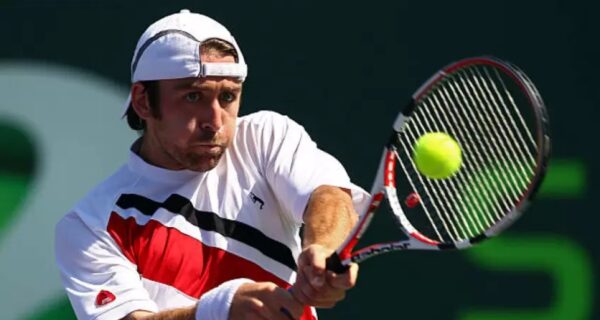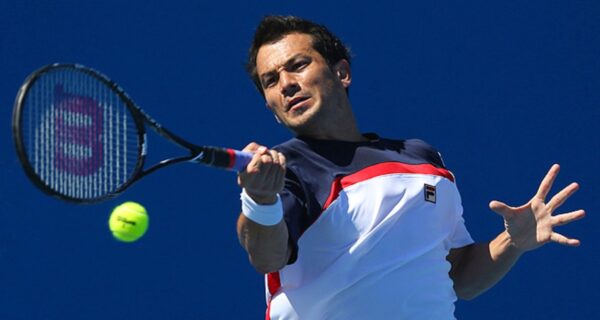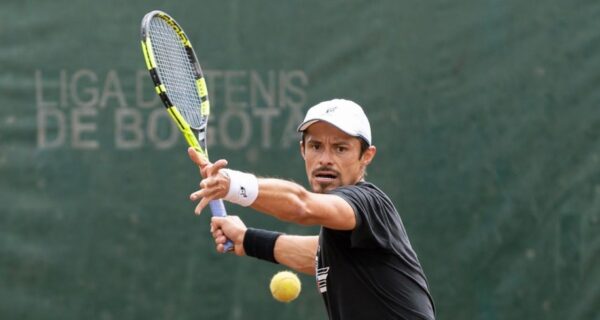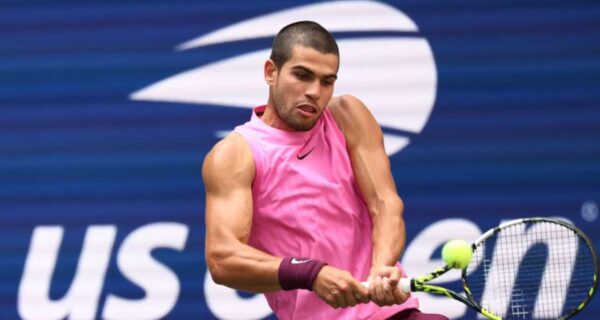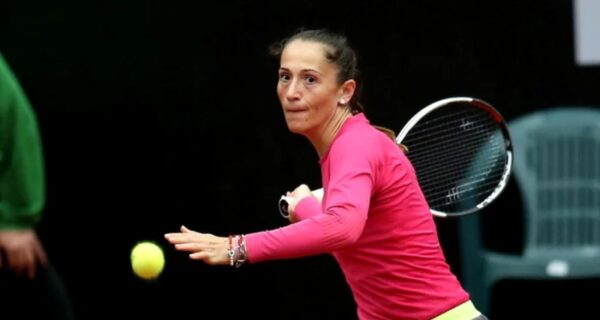Bernd Karbacher is a name that stands out in German tennis history. Known for his powerful play and memorable matches, Karbacher’s career featured two ATP singles titles and a top 25 world ranking.
In this article, find information about Bernd Karbacher’s net worth, career earnings, coach, career stats, relationship status, and more.
Bernd Karbacher’s Biography
| Field | Detail |
|---|---|
| Full Name | Bernd Karbacher |
| Date of Birth | April 3, 1968 |
| Age | 57 |
| Nationality | German |
| Birthplace | Munich, Germany |
| Height | 6’1″ (185 cm) |
| Weight | 161 lbs (73 kg) |
| Turned Pro | 1989 |
| Highest Singles Rank | No. 22 (April 17, 1995) |
| Highest Doubles Rank | No. 163 (June 6, 1994) |
| ATP Singles Titles | 2 |
| Net Worth | $2,043,057 |
| Career Earnings | $2,043,057 |
| Girlfriend | Confirmed (as of 2001) |
| Instagram Profile | N/A |
| Twitter Profile | N/A |
Early Career
Bernd Karbacher started playing tennis as a child in Munich, Germany. He quickly developed into a talented junior, showing grit and energy on the court.
After turning professional in 1989, Karbacher began to make his mark on the ATP tour. He steadily rose through the ranks, recording important wins and learning through tough matches.
By the early 1990s, he earned recognition for his aggressive baseline play and determination. His early years laid the groundwork for future success and taught him the value of resilience in professional sports.
Professional Career
Karbacher’s professional journey is filled with hard-fought matches and signature moments. He reached his career-high ATP singles ranking of world No. 22 in April 1995. Karbacher won two ATP singles titles—one at Cologne in 1992, and another at the Swedish Open in Båstad in 1994.
He made it to the quarterfinals of two Grand Slam tournaments: the US Open in 1994 and the French Open in 1996. His win against Ivan Lendl at the US Open and his upset of Goran Ivanišević at Roland Garros are highlights that many German fans remember.
Karbacher retired in 2000, leaving behind a legacy of smart tennis and dedication.
Bernd Karbacher’s Net Worth Details
As of 2025, Bernd Karbacher’s net worth is estimated at $2,043,057, matching his total career prize money won during his time on the ATP Tour.
Career Earnings
| Year | Prize Money |
|---|---|
| 2000 | $15,554 |
| 1999 | $145,510 |
| 1998 | $96,603 |
| 1997 | $93,287 |
| 1996 | $345,683 |
| 1995 | $354,337 |
| 1994 | $491,636 |
| 1993 | $261,995 |
| 1992 | $151,910 |
| 1991 | $16,646 |
| 1990 | $1,465 |
| 1989 | $1,524 |
| Total | $2,043,057 |
Career Stats
| Category | Value |
|---|---|
| Career Singles Record | 135–161 |
| Career Doubles Record | 45–92 |
| Singles Titles | 2 |
| Doubles Titles | 1 |
| Highest Rank – Singles | 22 |
| Highest Rank – Doubles | 163 |
| Grand Slam QF | 2 (1994 US, 1996 French) |
| Years Active | 1989–2000 |
| Turned Pro | 1989 |
FAQs
1. What are Bernd Karbacher’s biggest career achievements in tennis?
Karbacher reached the quarterfinals at both the French Open and US Open, defeating several top-ranked players during His career. He won two ATP singles titles and became a key figure representing Germany in Davis Cup matches, showcasing consistent performances against top competitors.
2. Who were some of Karbacher’s most notable opponents?
During His career, Karbacher faced and defeated players like Pete Sampras and Andre Agassi in major tournaments. He also played competitive matches against Boris Becker, Michael Stich, and Jim Courier, earning respect from the tennis community for His tactical style and determination.
3. When did Bernd Karbacher retire from professional tennis?
Karbacher retired from professional tennis in 2000 after a productive decade on the ATP tour. His decision to step away came as He shifted focus toward coaching and tennis administration activities, supporting the development of young players in Germany.
4. What is Karbacher’s legacy in German tennis?
Karbacher remains respected in German tennis for His resilience and skill during an era of strong competition. His victories over global stars and contributions to team events like the Davis Cup helped inspire younger athletes, and He continues to influence tennis programs through mentorship.
5. Did Karbacher pursue any roles after His playing career?
Karbacher became involved in tennis coaching and administrative roles. He focused on youth player development and took part in organizing tennis events, helping foster athletic growth within the German tennis community.

